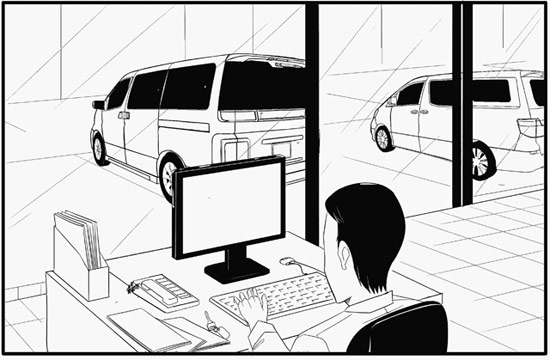Many in forums and social media have complained that Chrysler is not living up to its warranties—but who is to blame?
Long delays aren’t always the company’s fault. As for the long delays for warranty work, a good deal of this appears to be on the dealership end. The most likely culprit is sending the paperwork to the wrong email. For whatever reason, dealerships get approvals for work via email, and there are many places to send these emails. If they are sent to the wrong place, dealers usually do not get a reply, and nothing happens. Normally, Service Contracts, at least, accepts or rejects a claim within 24 hours. Some of the complaints talk about people waiting for weeks, which places the ball in the dealers’ court. Some dealer service advisors, getting no reply, seem to be telling customers the company refused the repair.

Who is to blame for this? Clearly the dealers should be sending the paperwork in to the right people, with everything the warranty people need to approve or reject the claims. On the other hand, the system is clearly not working as written; relying on email seems insane in this era of connected systems, and having claims sent to the wrong area just vanish is not an appropriate solution when there are real customers on the other end.
That said, if claims are normally processed within 24 hours, a dealership official that doesn’t check what they sent in and resubmit it with the proper information and routing deserves a share of the blame, too. While many of the service advisors are overworked at this point, there must be a way to track what’s coming in and follow through as needed. Simply blaming the company doesn’t work.
It’s worth noting that even years ago, before FCA was formed, warranty claims were often sent in with missing or wrong information. At some level this can be blamed on the company for not making its needs clear and easy for dealers to fill; at some level, the service advisors need to take some of the blame, too. As Deming pointed out, when many individuals make the same mistake, the organization has a systems issue, not a people issue.

To FCA US’ credit, the service contracts and warranty people are still approving needed work on a regular basis. Many “wear” parts are covered far longer than one would expect—e.g. struts are expected to last 130,000 miles, and if they don’t, Service Contracts will replace them.
Parts. Waits for parts appear to have grown across the industry. GM, Ford, and FCA US all seem to be keeping fewer parts in stock and having more trouble getting replacements. This started during COVID, but continues, possible as a cash-saving measure. FCA for one is trying to save money with their lavish parts distribution system, built up during Fiat to avoid having customers waiting, which is one reason they haven’t been able to settle with the UAW yet. There are also still issues with suppliers producing replacement parts and getting robotics gear (e.g. GM’s recent issues with Ultium production), too. For older cars, many parts are simply no longer made.

Actual changes. Chrysler has two basic types of warranty—the ordinary factory warranties that come with each car sold, and the service contracts customers buy with a new or used car. Stellpower sources reported that Service Contracts has moved from its union people to a combination of offshore subcontracting and unskilled local workers. In addition, the group is now requiring dealers to precertify service contract repairs over $1,000 before starting work.
For both service contracts and warranty work, on lifetime plans, our sources claim that maintenance requirements are being more strictly enforced. Customers who see “drain transmission fluid, replace filter, replace fluid” should have this work done rather than, say, flushing the transmission fluid. In addition, for lifetime warranties, customers may not be reminded (or reminded as frequently) about scheduled inspections. Customers must take control of the situation and make sure any required maintenance or inspections are done on time—within the generous time window for these. (These issues don’t apply as much to “timed” service contracts and warranties, e.g. those that end after eight years).
Conclusion. These problems all combine to give FCA US, at least, a good deal of ill-will; but not all the blame lies with the company itself. As one example, my own car was idle for two weeks “pending a decision” from Service Contracts—which turned out to have been made within a day of the application from the dealer. A customer waiting a long time for a decision may not have the knowledge or resources to chase that down; and few customers even draw a line between dealers and company, blaming the sins of the dealers on the company that franchised them.
In the end, while FCA can point fingers at service advisors, the problem is really theirs—and they need to find a solution, whether it’s giving customers a window into the process (e.g. “enter your VIN to see the status of your warranty claim”) or fixing the process from service advisor to claims adjuster.
